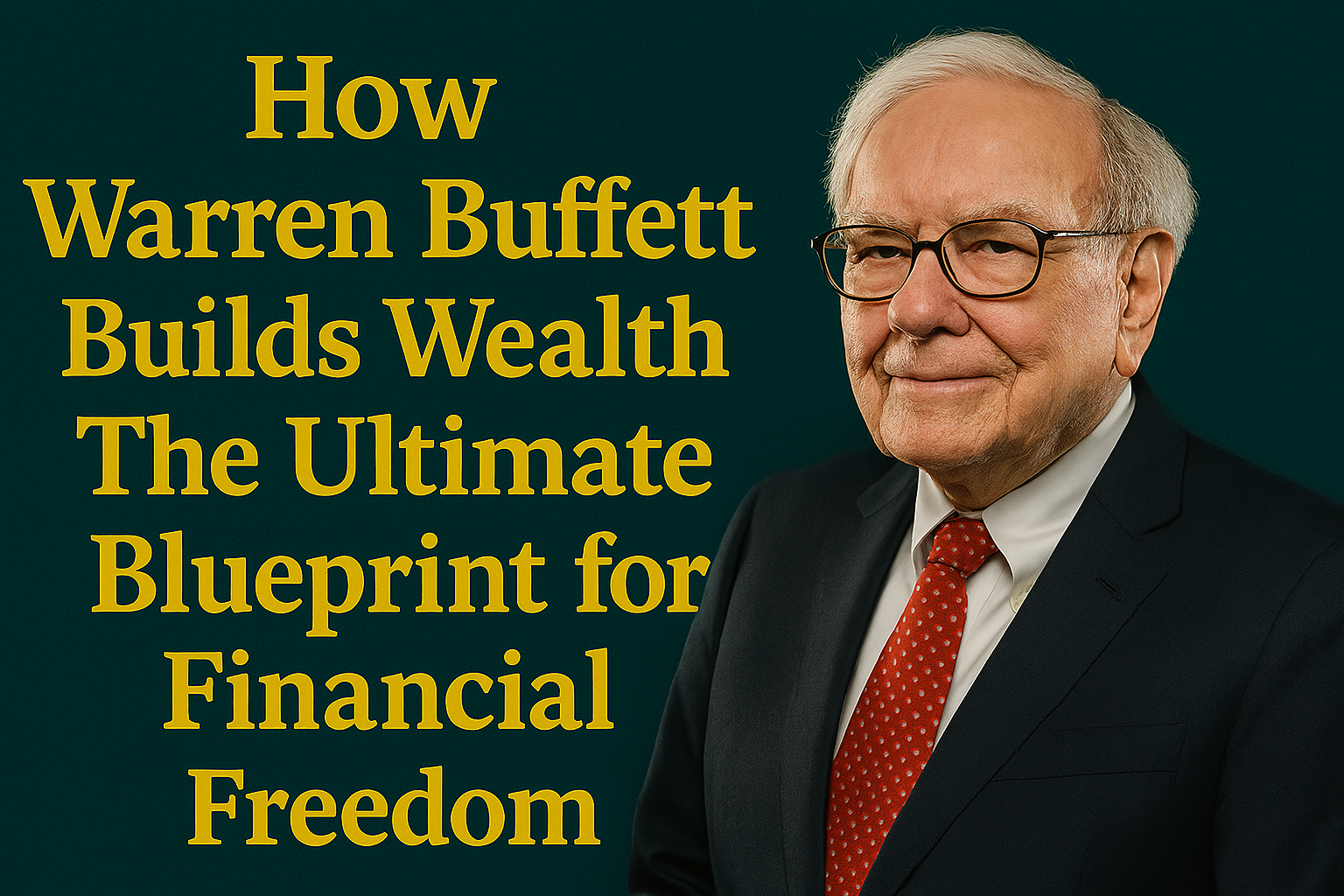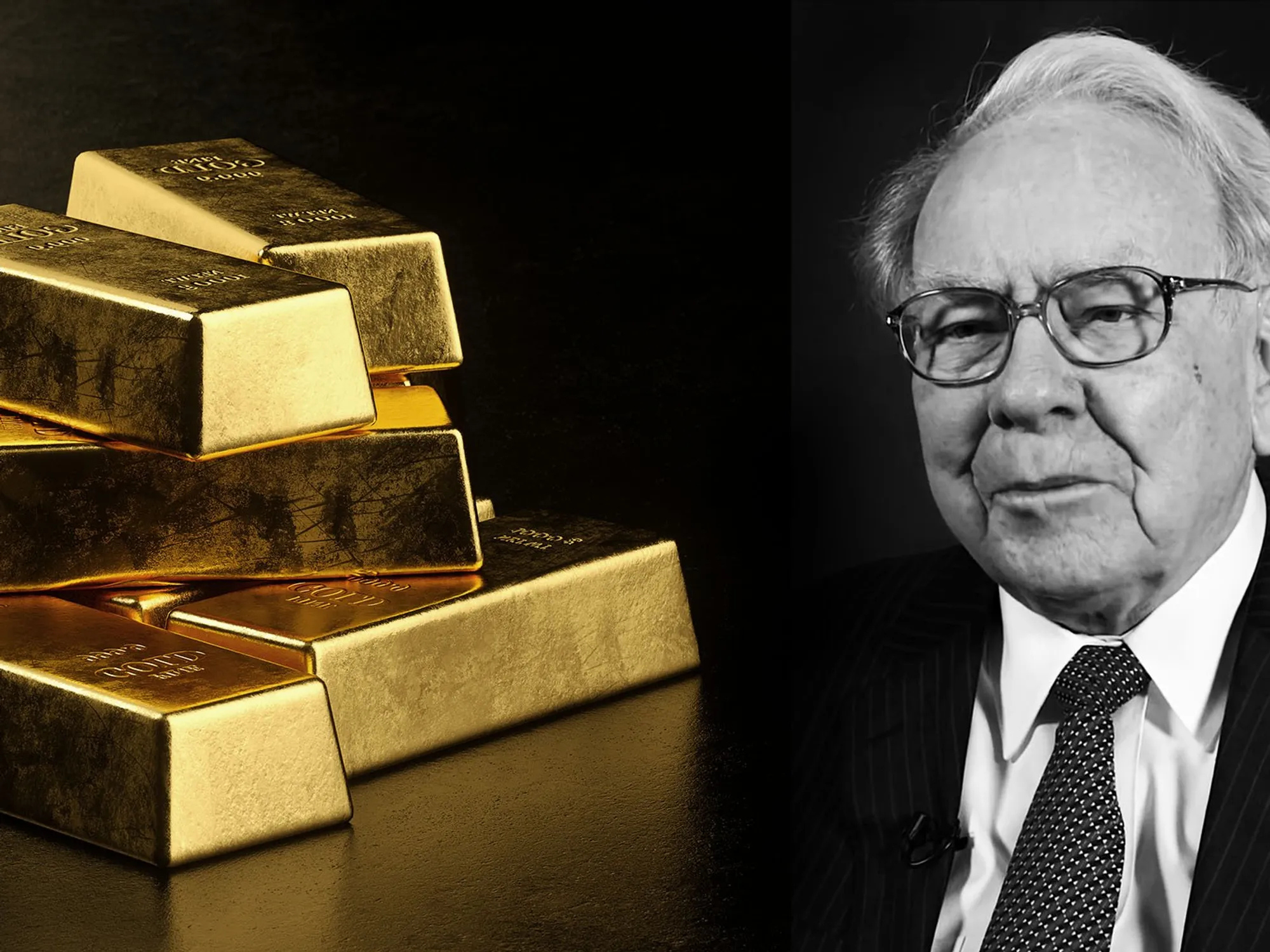
Suppose you could make $100 into $100 billion. The renowned investor and CEO of Berkshire Hathaway, Warren Buffett, however, views this as fact rather than fiction. Rather, he adhered to the age-old values of self-control, patience, and wise judgement. Buffett's technique is the answer to the question of how some individuals get wealthy while others live pay cheque to pay cheque. This is about learning the art of creating wealth over the long term, not about hazardous wagers or get-rich-quick scams. Knowing Buffett's strategy can change your financial future, regardless of your level of experience. So take out your notebook, because at the end of this blog, you will have a detailed roadmap to accumulating riches like the world's greatest investor.
Thanks to the power of compounding, Warren Buffett's wealth increased gradually over decades rather than suddenly. It is tiny at first, but as it continues to roll, more snow is added, and it grows enormous. Buffett began investing while he was a youngster, and his wealth increased dramatically over time by allowing his money to reinvest.
For instance, $10,000 invested at a 10% annual return will grow to $174,000 in 30 years without any additional work on your part! The most important lesson? Slow and steady wins the race, as Buffett demonstrates. Most individuals fail because they expect instant results.
An example from real life: Buffett paid about $7.50 per share for Berkshire Hathaway stock in 1964. A single share is now worth more than $500,000. That is the strength of long-term ownership of excellent investments.
It is well known that Buffett stays away from cutting-edge tech stocks and complicated financial products that he doesn't comprehend. Rather, he stays inside his "circle of competence"—businesses and industries that he is intimately familiar with. He comprehended Coca-Cola, American Express, and Dairy Queen's business concepts, consumer loyalty, and long-term profitability, for example; therefore, he invested in them.
Many people lose money following fads in cryptocurrency or hot stocks that they don't fully comprehend. The lesson of Buffett? Don't invest in a firm if you can't clearly describe how it earns money. Focus on companies that have distinct, long-lasting advantages—what he refers to as "economic moats".
The Reason This Works: Over time, businesses with strong brands, devoted clientele, and pricing power—like Apple or McDonald's—usually do better. Buffett's success stems from his reliance on these steady cash cows as opposed to risky bets.
Buffett's best investment technique is also his most well-known phrase. Buffett went shopping during market disasters, such as the 2020 pandemic or the 2008 financial crisis, when most investors panicked and sold. Knowing that the market would soon rebound, he purchased cheap, undervalued equities. On the other hand, he remains cautious when everyone is in a state of euphoria, such as the dot-com boom of 1999. The majority of individuals sell low out of fear and buy high out of FOMO (fear of missing out), which is the exact opposite of what they should do. Buffett purchases $1 worth of assets for 50 cents thanks to his contrarian mentality.
Case Study: During the 2008 financial crisis, Buffett made a $5 billion investment in Goldman Sachs. That investment had almost doubled by 2011. Buffett saw opportunity; some saw chaos.
Buffett has a humble life despite being among the wealthiest persons in the world. Buffett prioritises financial freedom over celebrities who show off their luxury aircraft and yachts. He advocates avoiding debt, reinvesting the difference, and spending less than you make. Buffett demonstrates that having more money working for you is more important than making ostentatious purchases, despite what many people believe.
Important Takeaway: Your wealth will increase more quickly the more you save and invest. Little sacrifices now result in great benefits later.
Buffett attributes a lot of his success to his unwavering pursuit of knowledge. He reads newspapers, financial reports, and novels for eighty per cent of the day. Buffett views learning as a lifetime endeavour, but most people stop studying after school. He stays ahead of the game through constant improvement, whether it be through studying psychology, history, or industries.
Step of Action: Start by reading the books that Buffett recommended: Benjamin Graham's The Intelligent Investor and Charlie Munger's Poor Charlie's Almanack. Reading for just half an hour each day can raise your financial IQ.
Warren Buffett's approach is based on patience, perseverance, and astute habits rather than brilliance. You only need to continuously adhere to these guidelines; you don't need a degree in finance or insider knowledge. Invest early, stay true to your principles, purchase when others are scared, live simply, and never stop learning. The route to riches is a decision, not a secret.
We're just getting started, so click the subscribe button and enable notifications. Today marks the start of your first million! Which Buffett principle most appeals to you? Tell us in the comments section below. Together, let's create a community of astute investors!
.png)
Has attending college ever been a dream of yours? You have, of course! That great dream:...
 Tajib Ali
Tajib Ali
"Invest for the long term" is a basic concept to keep in mind if you genuinely want to suc...
 Tajib Ali
Tajib Ali.png)
Imagine this: one day, you're travelling from New York to Hawaii in a window seat on an aeroplan...
 Tajib Ali
Tajib Ali
Imagine having no student loan debt when you wake up in six months. Not having to worry about $600 a...
 Tajib Ali
Tajib Ali
Imagine that your automobile breaks down when you're en route to work. Or there's an u...
 Tajib Ali
Tajib Ali
Many individuals believe that you should only begin saving money after you have a large income. ...
 Tajib Ali
Tajib Ali
Just consider this: what do you do first each month when your pay cheque arrives? And you decide to ...
 Tajib Ali
Tajib Ali
Is Warren Buffett's well-known maxim, "Save before you spend," familiar to you? ...
 Tajib Ali
Tajib Ali
When it comes to money, your early twenties may be both the most thrilling and the riskiest time of ...
 Tajib Ali
Tajib Ali
Comments (0)
Leave a Comment